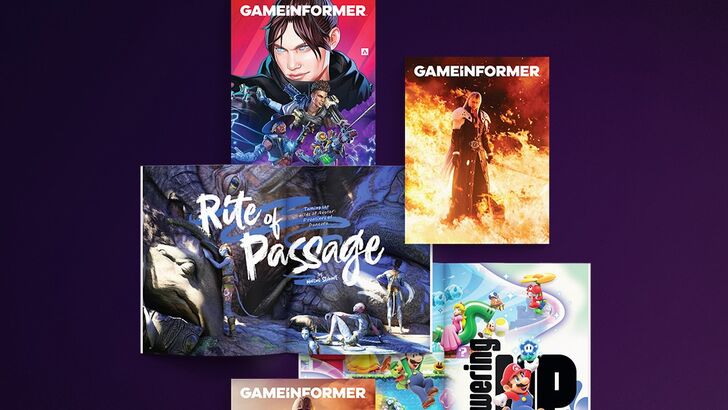 GameStop's abrupt closure of Game Informer, a gaming journalism mainstay for 33 years, has sent shockwaves through the industry. This article explores the announcement, Game Informer's legacy, and the stunned reactions of its employees.
GameStop's abrupt closure of Game Informer, a gaming journalism mainstay for 33 years, has sent shockwaves through the industry. This article explores the announcement, Game Informer's legacy, and the stunned reactions of its employees.
Game Informer's Final Chapter
The Announcement and GameStop's Decision
On August 2nd, a Twitter (X) post delivered the devastating news: Game Informer, both print and online, was ceasing operations. This unexpected announcement marked the end of a 33-year run, leaving fans and professionals reeling. The message acknowledged the magazine's journey from the early days of pixelated games to today's immersive experiences, thanking readers for their loyalty and assuring them that the shared passion for gaming would endure. However, the abruptness of the closure left little room for sentimentality.
Employees, including those working on the website, podcast, and video documentaries, were informed of the immediate closure and subsequent layoffs in a Friday meeting with GameStop's VP of HR. Issue #367, featuring Dragon Age: The Veilguard, becomes the final issue. The website itself has been completely removed, with all historical content redirected to a farewell message, effectively erasing decades of gaming history.
Game Informer's Rich History
 Game Informer (GI), an American monthly video game magazine, provided articles, news, strategy guides, and reviews. Launched in August 1991 as an in-house newsletter by FuncoLand, it was later acquired by GameStop in 2000 following GameStop's acquisition of FuncoLand.
Game Informer (GI), an American monthly video game magazine, provided articles, news, strategy guides, and reviews. Launched in August 1991 as an in-house newsletter by FuncoLand, it was later acquired by GameStop in 2000 following GameStop's acquisition of FuncoLand.
Game Informer Online debuted in August 1996, offering daily news and articles. Justin Leeper and Matthew Kato joined as full-time web editors in 1999, only to see the original site close around January 2001 with the GameStop acquisition. Both later joined the magazine's editorial staff.
GI Online relaunched in September 2003, undergoing a complete redesign with features such as a review database, frequent updates, and subscriber-exclusive content.
 A major website redesign in 2009 coincided with a magazine redesign, introducing features like a media player, user activity feeds, and user reviews. The Game Informer Show podcast also launched at this time.
A major website redesign in 2009 coincided with a magazine redesign, introducing features like a media player, user activity feeds, and user reviews. The Game Informer Show podcast also launched at this time.
However, GameStop's financial struggles, stemming from the decline of physical game sales, increasingly burdened Game Informer. Despite a meme-stock surge, GameStop continued cutting jobs, including regular layoffs at Game Informer. After removing physical Game Informer issues from its rewards program, GameStop recently allowed direct subscriber sales – a seemingly positive step, but ultimately a prelude to the publication's demise.
Employees React Online
The sudden closure has left employees devastated and shocked. Social media became an outlet for disbelief and sorrow. Former staff, some with decades of service, shared memories and frustration over the lack of notice and the loss of their contributions.
Konami's official account expressed gratitude for Game Informer's impact on the industry. Former staff members like Kyle Hilliard (content director), Liana Ruppert (former staffer), and Andy McNamara (former editor-in-chief, 29 years at GI) shared their heartbreak and anger at the abrupt ending.
 The irony wasn't lost on Jason Schreier of Bloomberg, who noted that a ChatGPT-generated farewell message closely resembled the actual announcement.
The irony wasn't lost on Jason Schreier of Bloomberg, who noted that a ChatGPT-generated farewell message closely resembled the actual announcement.
 Game Informer's closure marks a significant loss for gaming journalism. Its 33-year legacy, providing in-depth coverage and insights, leaves a void, highlighting the challenges facing traditional media in the digital age. While the publication is gone, its impact on the gaming community will undoubtedly endure.
Game Informer's closure marks a significant loss for gaming journalism. Its 33-year legacy, providing in-depth coverage and insights, leaves a void, highlighting the challenges facing traditional media in the digital age. While the publication is gone, its impact on the gaming community will undoubtedly endure.








